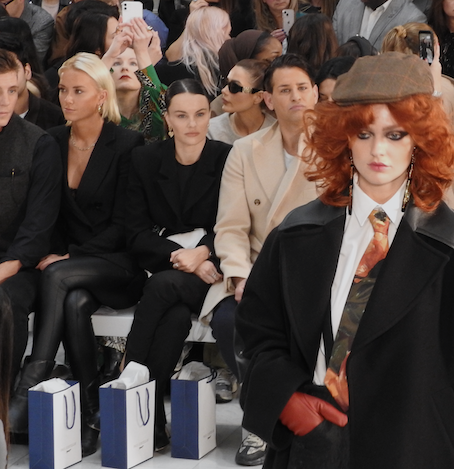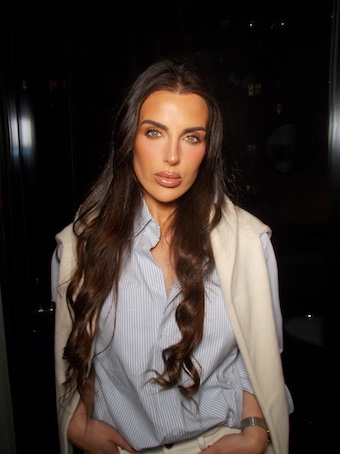The Influencer Era: FashionCapital Talks to The Blogger Agent CEO About Today’s Generation of Fashion Storytellers

17-09-2025
As Fashion Week continues to evolve to combine the physical with digital, so too does the role of those who shape its narrative. Once dominated by traditional fashionista media, the front row now includes a new generation of storytellers: influencers and creators. At the intersection of content, commerce, and culture, these digital voices are redefining how audiences connect with fashion.

In this Q&A, Claudia Bish, (pictured right) Talent Manager, Founder, and CEO of The Blogger Agent – shares her insights on the growing influence of creators at Fashion Week, how brands can forge meaningful partnerships, and how creator / influencer collabs will continue to evolve…
1. Do influencers attending Fashion Week provide a deeper connection with consumers than traditional press coverage?
Claudia: Influencers provide connection in a different way. Press has always been vital in documenting and critiquing collections, but influencers add a layer of immediacy and intimacy. They bring their audience with them into the shows, backstage, and even dinner tables, giving fans access they’d never otherwise have. It’s not about one being stronger than the other, but about different kinds of value.
2. How can brands distinguish between authentic engagement and staged or transactional influencer content?
Claudia: Authentic engagement isn’t always about likes, it’s about the depth of the response. You know it’s genuine when followers are asking questions, sharing their own experiences, or keeping the conversation going beyond the post. Brands should also look at consistency: does the influencer regularly create content in this style, or does it suddenly change when a partnership appears? When the collaboration feels like a natural extension of their usual voice, that’s when it lands.
3. What should brands consider when choosing which influencers to invite or collaborate with during Fashion Week?
Claudia: Authenticity has to be the starting point. Is this influencer genuinely a part of the fashion conversation? Have they shown an interest, created fashion-led content, or built credibility with their audience in this space? A brand should ask whether the partnership feels like a natural extension of the influencer’s personal brand. If it feels forced, the audience will spot it immediately.
4. What role do traditional fashion journalists and bloggers still play in today’s Fashion Week?
Claudia: They play a complementary role. Journalists and bloggers provide in-depth analysis, critique, and historical context that can’t always come through in short-form digital content. Influencers, on the other hand, offer immediacy and personality. Both contribute in meaningful but different ways, and both are vital to the ecosystem.
5. Is there space for a hybrid model where influencers and traditional fashion media co-exist and complement one another?
Claudia: Absolutely. The strongest Fashion Week moments happen when both coexist. Journalists can shape the narrative, influencers amplify it through lived experience, and together they create a complete picture for audiences. It’s not about replacing one with the other, but recognising that Fashion Week now thrives on multiple layers of storytelling.
6. What does success look like for a brand after partnering with an influencer(s) during Fashion Week?
Claudia: Success is when the partnership feels bigger than a single post. It could look like organic conversations spilling into TikTok and Instagram, or press picking up on a moment the influencer helped create. It’s also about long-term association. Does the influencer become linked in the consumer’s mind with that brand’s Fashion Week identity? On a practical level, success shows up in engagement quality, brand sentiment, and whether the content continues to live beyond the event. True success is when the brand feels part of culture, not just present at Fashion Week.
7. How, in your opinion, do you think the influencer / creator role will evolve?
Claudia: We’re already seeing a shift. Creators are no longer just “covering” Fashion Week, they’re becoming collaborators in the industry, from capsule collections to creative direction to hosting shows. They’re also increasingly expected to stand for something: whether that’s sustainability, diversity, or new ways of consuming fashion. In the future, the line between influencer, entrepreneur, and cultural figure will blur even more. We’ll see creators driving industry conversations, shaping consumer habits, and in many cases, replacing traditional celebrity endorsements with something that feels more connected and more current.
With thanks to Claudia























